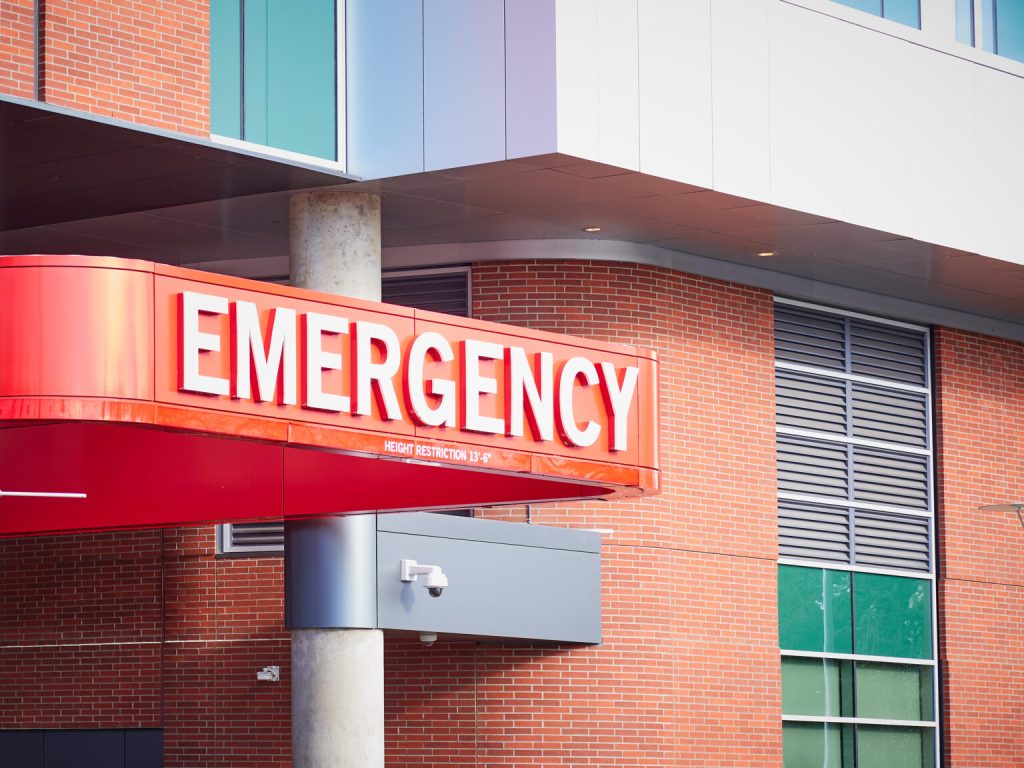Commentary: The Trump-GOP budget is a dire threat to Oregon’s patients, hospitals and nurses
Published 6:47 am Wednesday, July 30, 2025

- Health care workers fear dangerous conditions for patients and nurses because of Medicaid cuts. (Alan Cohen/Oregon Capital Chronicle)
Health care workers are warning of dangerous conditions in hospitals for patients and nurses alike under the new law.
Tamie Cline, president of the Oregon Nurses Association (ONA), has spent 22 years working as a nurse at Good Shepherd Medical Center in Hermiston. Good Shepherd is one of more than 700 rural hospitals across the country at risk of closure because of the newly passed GOP budget.
To cut trillions in taxes for corporations and the wealthy, the so-called “Beautiful Bill” slashes federal Medicaid funding by more than $1 trillion over 10 years and is predicted to leave up to 17 million Americans without health insurance. That’s a huge threat to patients as well as their hospitals, especially rural hospitals that rely more heavily on Medicaid payments.
It also puts frontline health care workers like Cline in increasingly dangerous and unsafe working conditions.

Karina Smith is a Henry A. Wallace Fellow at the Institute for Policy Studies. She’s from Corvallis, Oregon.
Trending
In Oregon, one in three people rely on the state’s Medicaid program, the Oregon Health Plan. Under the new GOP law, an estimated 200,000 Oregonians stand to lose that insurance, putting patients and providers alike in danger.
Rural communities are particularly vulnerable to these cuts. Nearly half — 44% — of rural hospitals in the U.S. are already experiencing severe financial strain. This year alone, 16 rural hospitals shut their doors due to financial issues.
Medicaid is often the lifeline keeping rural hospitals afloat.
But when that coverage is stripped away and thousands of patients go uninsured, hospitals are left to cover the cost of uncompensated care. More uncompensated care will lead to hospital closures and service reductions, causing more frequent and severe medical emergencies as patients are forced to navigate long travel times, overcrowded ERs, chronic staffing shortages and barriers to preventative care.
Cline knows how this could play out. She told me about one patient who came in with an easily treatable diabetic foot ulcer. Because they were unable to afford medication and follow-up visits, the patient’s leg was later amputated.
“Nurses are already seeing people suffer,” Cline said. Medicaid cuts are going to make patients “sicker and sicker,” and “throw nurses back into what we did during COVID.”
Trending
Since the pandemic, Cline has been outspoken about the severe rates of burnout and depression among nurses. Studies show that strenuous working conditions and chronic emotional laboring leads to serious mental health issues for frontline nurses.
Coupled with rising mental health issues, nurses are also experiencing unprecedented rates of workplace violence. In one survey, 92% of nurses in the Oregon Nurses Association union reported experiencing violence in the workplace last year. Nationally, from 2007-2022, hospital staff saw a 181% rise in workplace violence injuries.
“Nurses are being punched, kicked, and thrown against walls because of impatience and stress,” says Cline. “No one is protecting us, and it’s just getting more volatile.”
Under the GOP’s changes, Cline envisions workplace violence becoming commonplace in rural hospitals. If patients are forced to wait 16 to 20 hours in the ER for a family member to get care — only to be told the wait will be even longer due to staffing shortages and overcrowding — Cline warns their anger and pain will be directed at front-line workers.
Cline’s union has spent years pushing for Safe Staffing and Stop Workplace Violence laws to protect nurses from unsafe working conditions. But they’re bracing for cuts. “The first people on the chopping block are not going to be upper administration. It’s going to be the workers,” says Cline.
Cline says it’s time for voters and health care unions to get loud, educated, and proactive. Nurses are coming together to help rural communities get their paperwork, medical history documents, and emergency preparedness plans together for when hospitals begin closing.
“We can’t fight for our own health and safety if we are expending all of our energy fighting everyone else,” says Cline.
Our health care workers deserve to feel safe, protected, and valued. Instead, the new Trump-GOP budget actively neglects patients — and health care workers — in service of corporate profits and partisan political agendas.
Karina Smith is a Henry A. Wallace Fellow at the Institute for Policy Studies. She’s from Corvallis, Oregon.







